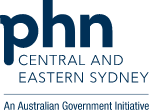Practice nurse update – 25 February 2026
Practice nurse update – 25 February 2026 Practice nurse orientations Networking opportunities News and announcements Education opportunities CESPHN – SUPPORT FOR NURSES WORKING IN GENERAL PRACTICE Are you a new nurse working in general practice? Our practice support team are available to provide you with a Practice Nurse orientation session…




